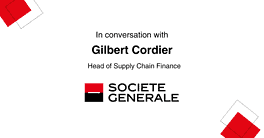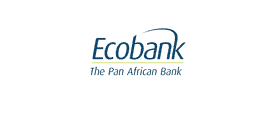Increasing collaboration among fintechs, retailers, banks and regulators is bringing frictionless and borderless electronic payments closer to reality on the African continent, explains Nombasa Hlathi, Head of Payments and Receivables at Standard Bank.
The potential for frictionless, digital payments in Africa is growing, spurred by the collective efforts of an expanding ecosystem of market players.
This offers a compelling opportunity for businesses and individuals alike. Across online, mobile point-of-sale and other electronic channels, for example, total transaction value in Africa’s digital payments market is already projected to reach $146 billion this year, according to Statista Market Insights, based on data from April 2023[1]. Further, between now and 2027, the expected annual growth rate for total transaction value is 16%.

Standard Bank’s Head of Payments and Receivables
While the aim at a corporate level is to enable smoother flows for business, Standard Bank’s Nombasa Hlathi also pointed to the rising importance of facilitating remittance payments as people who travel across the continent need to send money back home. “This is becoming the driver to enabling faster and less costly payments,” she said.
Trade, tech fuel progress
Initiatives to overcome hurdles to borderless payments such as exchange and other controls are gaining traction throughout different parts of the continent by taking a regional, step-by-step approach.
This is essential given the size of the task and divergence in areas such as policies, regulations, payments infrastructure and language.
Yet programmes in Eastern and Western Africa to create centralised clearing houses, for example, are gradually breaking down the borders. Authorities are also adopting a common approach in signing treaties to enable pan-African payments that support more trade. “A lot of work is being done in different regions to simplify how we do business,” added Hlathi.
At the same time, integrators such as fintech companies are helping to accelerate borderless digital payments.
In short, they are driving greater connectivity with both central banks and commercial players in local markets, to pilot and showcase technology-led solutions that offer the required agility to move money in a way that also makes it readily accessible between countries. “Cash is still king for a lot of African people,” explained Hlathi.
At the same time, some regulators, including the South African Reserve Bank, are shifting stance, creating a ‘sandbox’ to road test payments-related technology.
Engaging the ecosystem
Bringing a wider range of market players to the table is vital to a sustainable and effective payments infrastructure in Africa.
“Banking is no longer just about banks and regulators,” said Hlathi, explaining that new parties from fintechs to retailers have big roles to play within the ecosystem. “They introduce new ideas as they view banking through a different lens.”
Customers themselves are also changing the rules of Africa’s payments game, as they start to dictate to their banks how and where they want to access their funds. “Rather than banks selling solutions to customers, we need to meet their evolving demands,” added Hlathi.
She believes Standard Bank is well-placed to navigate the new landscape emerging. Despite the digital nature of transactions, a physical presence in multiple markets within Africa is a key differentiator, as is customer trust and being able to offer the same experience in each region. “The bricks-and-mortar element has a psychological impact on our clients,” said Hlathi.
Further, she added, being a platform bank enables Standard Bank to partner with fintechs and other complementary players, ultimately playing to the institution’s strengths.
New-look payments not far away
In Hlathi’s view, it is realistic to expect a viable digital, borderless payments landscape in Africa by 2025.
This outlook aligns with the focus among the continent’s regulators on a 2025 goal for interoperability and real-time, seamless payments. In addition, the financial industry wants to meet SWIFT’s ISO 20022, an emerging global and open standard for payments messaging.
Regulatory backing will support such rapid acceleration of solutions to facilitate digital, borderless payments. Mobile banking in Kenya is a case point, plus experiences in other parts of the world provide an important reference point. India, for instance, which shares similarities with Africa in terms of scale and its developing status, is seeing notable success in how it is digitising its payments landscape.
[1] https://www.statista.com/outlook/dmo/fintech/digital-payments/africa
Sponsored by:



